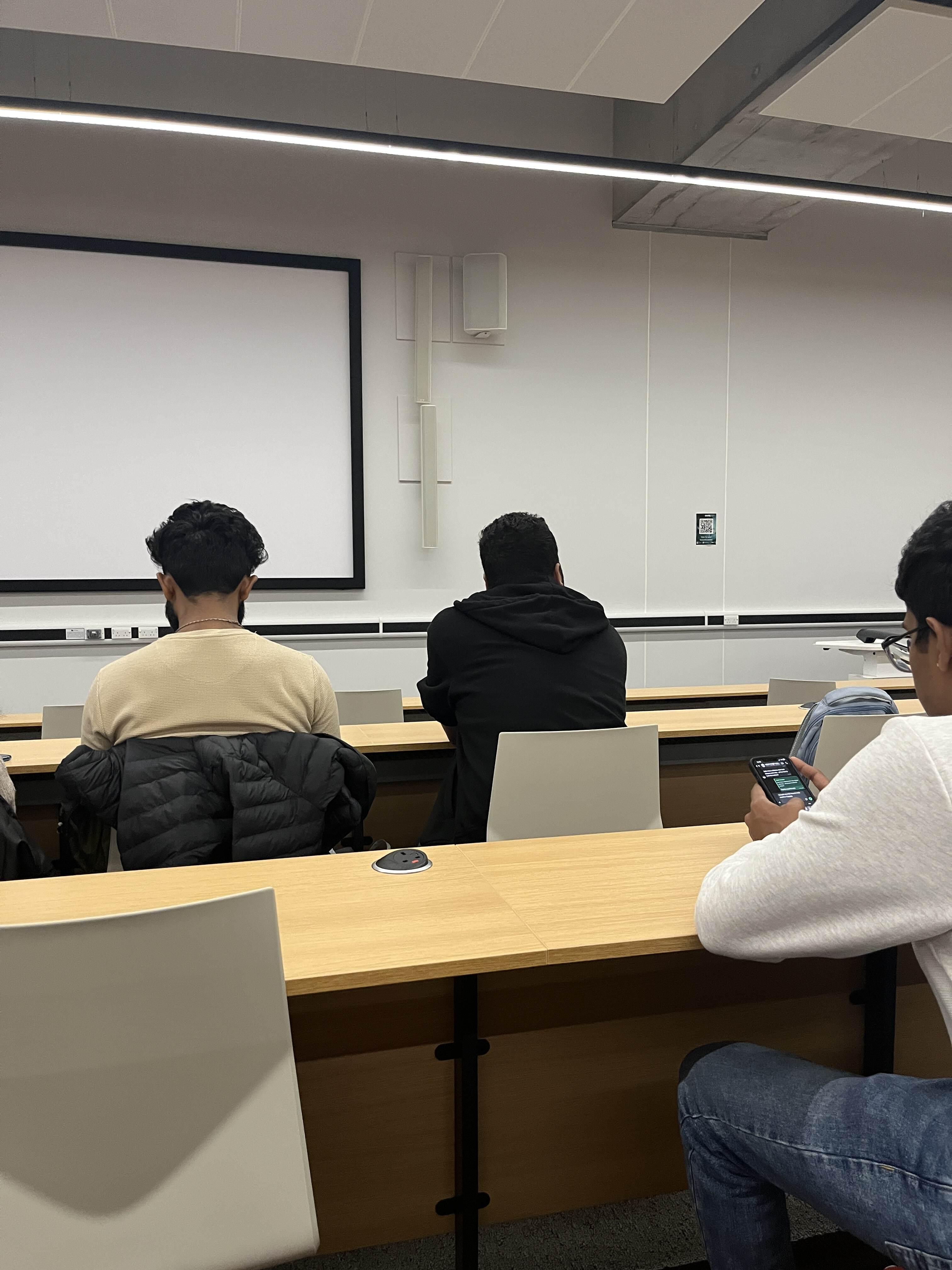What Students Say
Likes
- The Campus is scattered around the city (Close to each other), so you get a lot of chances to roam around the city and take lectures.
- The professors here (Specially in Data Science) are quite knowledgeable and experienced so getting the guidance is quite fruitful.
- The Student Union in Sheffield is one of the best in the UK, so there are a lot of societies and clubs to join and there's always an event going to happen.
Dislikes
- Food is a bit of an issue, I mean the canteen is good but for Indians, you have to find somewhere else to eat.
- As mentioned the campus is scattered across the city, which is good but sometimes it kind of becomes a hassle when you have to walk for 30 minutes before a lecture every morning.
- Relatively expensive things here at the University.
Course Curriculum
- The MSc Data Science course at the University of Sheffield is considered to be moderately demanding since, besides theoretical knowledge, practical skills are also gained. While the basics might be easy for students who have experience, advanced modules and project work ensure depth and application-based learning.
- Pros: Diverse curriculum with both academic and industry orientation. Practical projects and hands-on lab work enhance real-world skills. Supportive faculty, advanced computing labs, and resources are definite positives.
- Cons: Initial modules in the course may seem a bit too basic for someone with loads of prior experience. The workload is immense during assessment periods.
- Class Schedule: There are approximately 1-2 classes a day, often between 9 AM and 5 PM, allowing for breaks in between. The timings depend on modules and workshops.
- Ideally, the pedagogy here combines lectures, practical labs, and project-based learning to make students pick up theoretical knowledge along with hands-on experience. That is quite a very effective way of preparing us for the job market, having strong emphases on real-world applications and industrial tools, along with programming skills.
- Course content coupled with faculty guidance thus prepares one comprehensively for job placement in data science.
Admission Experience
- I applied to the universities, University of Edinburgh, University of Birmingham, University of Liverpool, University of Bristol, University of Sheffield, and Newcastle University.
- Got admitted into all of them except the University of Edinburgh (The reason was that the Undergrad was not in a relevant field).
- I went with the University of Sheffield because of its employability expect.
- The reason to choose Sheffield, was firstly it's less expensive compared to other cities like London and Manchester. Secondly, the course was based on employability which is quite important in my opinion. The Living expenses were also in a manageable range.
- The admission process was quite smooth, got mail about the pre-registration tasks, and when to apply for a VISA, how to pay the fees, they have a dedicated platform for all of it so the process was quite easy to follow furthermore, they have Indian representative in India so in case of doubt you can reach out to them.
- The eligibility criteria for this course are IELTS at least a 6.5 band and an undergrad in a relevant field with some mathematics.
- I have applied for the intake of 2024, which aligns with my aim of starting my master's after proper preparation. The admission process took around 2-3 months that included the following steps: preparation of documents, submission of application, conditional offer, completion of requirements such as financial proof, issuance of CAS, loan approval, and a student visa. Each step needed to be coordinated properly, specifically considering that timelines for loans and CAS are different for different institutions and countries.
Faculty
- Admired Faculty Members: Some professors have immense research potential, others are inspiring teachers, but all those who can connect their teaching to the real world and offer mentorships become simply good.
- The average number in my class is around 30 to 50 students for the MSc Data Science program at the University of Sheffield. There are quite a good number of Indian students enrolled, adding to the international diversity of the cohort.
- Faculty-to-student ratio is very good, usually around 1:15, thus permitting meaningful interaction and personalized support.
Campus Life
- Studying at the University of Sheffield guarantees an exciting campus life with numerous extra-curricular activities and clubs.
- Main Campus Facilities: Library, sports facilities, and medical facilities are included. Major Events: Welcome Week and International Festival. Athletic clubs, cultural societies, and volunteering offer good opportunities for students to get involved outside the classroom.
- Most Indian students prefer to stay in nearby accommodations.
Part Time Jobs
- Some of the on-campus part-time jobs at the University of Sheffield include TA (Teaching Assistant), RA (Research Assistant), and DA (Departmental Assistant), all of which pay between £10-£15 per hour. Other on-campus jobs-for instance, those in the library or the cafes-pay something close to £9-£11 per hour. The maximum number of working hours per week is 20 during term. Off campus, you can be able to get a retail or hospitality job offering similar wages.
- The most preferred part-time jobs in Sheffield by students are retailing-for example, working in shops like Primark or Tesco-participating in the hospitality industry as baristas or waiters, doing tutoring, customer service, seeking appointments as research assistants, and performing jobs on campus related to working in the library.
- The hourly wages for these part-time jobs in Sheffield can start from £8.50-£12.00 for various kinds of jobs. Retail jobs, such as working in a supermarket, usually start at £8.50-£9.50 per hour, while other jobs, like tutoring or administrative work, might pay more?. Most of them are comparatively easy to secure, especially the ones in retail and hospitality, while competition increases when things get more specialized.
- The application procedure generally involves browsing job boards such as Indeed or the University of Sheffield's job portal, sending in applications with a CV and covering letter, and then going for an interview.
Placement
- After completing an MSc in Data Science from the University of Sheffield, job cases are mostly observed within 6 months for full-time jobs, and the average percentage is around 70-80% among students.
- The average salary will be between £25,000 and £40,000. Students can get jobs on campus, through networkings, via internship programs, or through online portals. Graduates are being hired by Accenture, IBM, and other companies like Amazon.
Accommodation
- Amber helped me with accommodation. The rent is £500 per month, which includes the basic utilities and amenities: Wi-Fi, heating, and access to shared kitchen and living spaces. The location is great, fairly close to the campus of the University of Sheffield.
- The official portals for student accommodation and joining groups on Telegram for extra suggestions were really useful while searching for accommodations. A challenge was seeing that the room's availability falls within the time I needed.
- I recommend starting early, trying more than one platform, and considering university and private housing as well. Ecclesall Road and the city center are other places where many Indian students stay.
Exams
- The IELTS score was one of the requirements for an admission that had to be presented to assure the board of my English proficiency, as my program insisted on it for non-native speakers. The required documents were a Statement of Purpose (SOP), Letters of Recommendation (LORs), an updated CV, academic transcripts, and a copy of my passport.
- No interview was included in the process of application. However, my Statement of Purpose and Letters of Recommendation were highly emphasized in the application, considering my academic as well as professional experience. The admission procedure was quite straightforward, yet it required detail for each document and meeting the English proficiency requirements.
Fees
- The fees structure is simple it's 29,700 Pounds for international students.
- An estimation of monthly expense is quite subjective but I'd say around 200-300 Pounds without rent is a good range.
- The rent is also dependent on where you live so if it's near city center then it's gonna be a bit higher if farther then a bit on the lower side.
- The credit required for passing the masters in data science is 180.
Scholarship
- There was only one Scholarship available for international student of about 2,500 pounds which is applied to everyone. so after that deduction, the final tuition fees comes out to be 27,200 Pounds.
- The statistics for the scholarship changes every year, but there's another scholarship that international students can apply for which is around 5,000 pounds, but the probability of getting it is quite a bit low.






